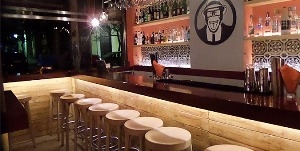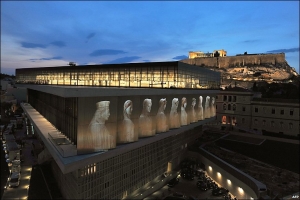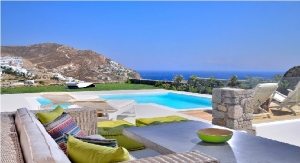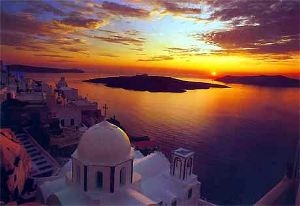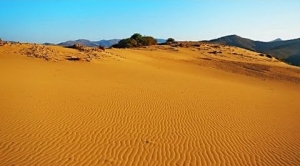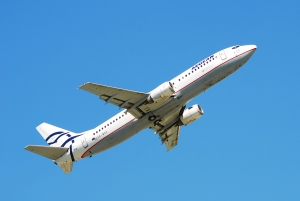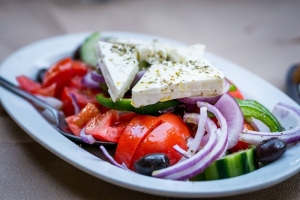BUSINESS CENTRE
XpatAthens
Springtime Long Weekends…
Long weekends are great, even when they are interrupted by a work day! So last weekend certainly felt like a long weekend, though Thursday was the official day off. I spent the weekend drinking coffee – lots of coffee – and catching up with a few friends I hadn’t seen for ages…
There is something special about the start of May – it’s the weather, it’s the greening of the landscape, it’s the flowers in bloom everywhere, it’s the great energy of everyone, it’s the promise that summer is around the corner. It’s also the crazy cats doing their business on every corner and some interesting looking bugs on the street…
The whole weekend I was struck by something that seemed unusual, or rather ‘unseasonal’: the huge number of tourists in the city! I began to notice this a couple weeks ago, but this past weekend left no doubt. Athens is back on the tourism map. Having been through the airport a few times over the past couple weeks, I can also say that the place is packed…
It seems Greek tourism is in all the headlines too – locally and internationally. Even the New York Times put Athens on its must-see list for 2014 (http://tinyurl.com/mgsgllo). That must deserve a thank-you from someone…
Here are some more recent headlines from a random search:
· ‘Greece’s Market Return mirrors return of tourists’
· ‘Tourism in Greece beats competition’
· ‘Tourism Boom drives Greece to first surplus’
· ‘Greek Tourism set for a record year’
· ‘Greece sets positive signs for tourism’
Is it possible? Is it possible that all those people scared off by tales of violence and empty ATM machines are booking their EasyJet flights? Should we believe this out-pouring of positive feeling from abroad? Will this summer be one for the record books?
Well, it’s May and the answer – for now at least – seems to be a resounding yes. So hats off and smiles on for the tourists – they are everywhere…
In the meantime, if you’re looking to freshen up your springtime nightlife, or for cool new places to take your visiting friends, check out some of the many new bars that have popped up around the city: http://tinyurl.com/lbxgstp (in Greek, but you’ll get the picture…)
Kalo mina to all…
Until next week,
Jack
In this weekly space, keep up with ‘Jack’ as he navigates daily life in Athens… Anecdotes, stories, hits & misses, the good, the bad and, well, the rest…
Visit The Acropolis Museum
The program ‘A Day at the Acropolis Museum’ invites visitors to spend a day at the Museum enjoying a range of activities.
Stroll through the Galleries
Take a stroll through the exhibition and speak to a museum archaeologist host available to answer any questions or queries you have. From the second floor balcony see a special and unexpected view of the Archaic Gallery. Visit the Parthenon Gallery on the third floor with its unique views of the Acropolis.
Conserving the Caryatids
The Acropolis Museum has commenced the conservation and restoration of the Caryatids, the Kore from the south porch of the Erechtheion temple. Visitors have the opportunity to watch conservators do the delicate work of cleaning the Caryatids with advanced laser technology.
Family Backpacks
The Museum invites families to search for the 12 different representations of the Goddess Athena amongst the exhibits of the permanent collection. Families can borrow a family backpack from the Museum’s Information Desk by leaving an identification card. Backpacks are available on a first-come first-serve basis.
Gallery Talks
Brief presentations by Museum Archaeologists-Hosts are held in Greek and English every Friday, Saturday and Sunday.
Film
Visitors can learn more about the Parthenon sculpted decoration from a video projected on the third floor at the entrance to the Parthenon Gallery.
Eats and Treats
The Museum invites visitors to have a meal or refreshment at the second floor restaurant with panoramic views of the Acropolis (children’s menu available). On a fine day visitors can sit outside on the restaurant balcony. A small café is also available on the ground floor offering views to the archaeological excavation below the Museum.
Reading Area and Wi-Fi
The Museum offers the reading area with free wi-fi internet access on the second floor outside the restaurant. Visitors can browse through books relating to the Parthenon, relax or use their laptop.
Museum Gifts
Treat yourself to a small memento of your visit or one for friends and family. Select a gift from the wide range of goods available from the Museum shops. Find books in the second floor shop and gifts and stationary on the ground floor.
Friday Nights at the Museum
Every Friday the Museum is open until 10 p.m. every Friday and the restaurant is open between 8 p.m. and 12 midnight serving a special menu, beautiful night views of the Acropolis and great value for money. For reservations, please contact the restaurant during Museum opening hours on +30 210 9000915.
Museum Contact Info:
15 Dionysiou Areopagitou,
Acropolis, Athens
Tel: 210-9000900
Website: www.theacropolismuseum.gr
Source: Breathtaking Athens and Acropolis Museum
Foreigners Double Their Investments In Greek Properties
Foreigners doubled their investment in Greek property, mostly holiday homes, in the first half of the year compared to the same period in 2013, Bank of Greece data show.
In the period from January to June 2014 a total of 117.4 million euros flowed into Greece to that end, compared with 60.3 million a year earlier, reflecting the clear improvement in the holiday home market, at least as far as foreign buyers are concerned, as they are cottoning on to the bargains currently available in Greece.
Holiday home prices in Greece have dropped more than 40 percent since the start of the crisis six years go.
Demand has soared to such an extent this year that it eclipsed the sum of all investment for the whole of 2012 (113 million euros) in the first six months. Foreign interest in the local market started to become evident last year when they invested 168 million euros – 48.5 percent more than in 2012. And this year’s growth would have been greater had the market not had the cloud of its unstable tax status hanging over it. Transactions were significantly reduced in the first five months of 2014 due to the unclear application of the capital gains tax on properties, forcing many investors to postpone their purchases.
To read more, please visit www.ekathimerini.com
By Nikos Roussanoglou
New Novel “Sunsets in Oia”
A dazzling remote island, delectable food, soulful music, steamy romance and life-changing experiences – this sounds like the making of a remarkable vacation retreat. And it can all be enjoyed within the pages of Sunsets in Oia. Now, readers everywhere can escape their everyday lives and travel along with exciting characters as they explore a real-to-life location.
The debut novel by Canadian writer Sheila Busteed, “Sunsets in Oia” follows Selene Doherty, whose excitement from the successful tour with her band is cut short when she learns that her parents were killed in the Athens riots. After the funeral, she escapes to her bequeathed summer home on the island of Santorini to recover from the tragedy. She is haunted. The loss of her family leaves her with a feeling of disconnectedness that is unshakable.
But a chance reunion with a man from her past brings new romance – and hope. Drawing strength as he helps her get in touch with her roots, Selene begins the journey to redefine her life.
“Sunsets in Oia” offers a snapshot of a summer, blending vibrant characters, enduring culture, vivid scenery and impactful themes – plus a bit of erotica – that will leave readers cheering, “Opa!”
“Sunsets in Oia” is for sale through the FriesenPress Bookstore and will soon be available from other fine retailers, including Chapters Indigo, Barnes & Noble, Amazon, Google, iTunes, Kindle, Kobo and Nook, among others.
Author Sheila Busteed, 28, is a freelance writer, teacher, journalist, photographer and designer who possesses a deep connection to music. Originally from Tecumseh, Ontario, Busteed is an avid traveler, and the creation of “Sunsets in Oia” took her back to the island of Santorini for a writing retreat. After nearly a decade in Canada’s capital, Busteed moved to South Korea to begin a new career as an English teacher. She spends much of her spare time writing, traveling and learning about her newly adopted home.
By Anastasios Papapostolou
Coming In From The Cold: Homeless But Not Hopeless Gives Compassion A New Meaning.
Fortunately, however, there are kind and compassioante people living here in Greece and abroad who do care. Large numbers of dedicated volunteers and members of organizations are fiercely committed to providing help and offering their support. Those volunteers who have come face to face with the harsh realities out on the streets and have listened to the heart-wrenching stories, many from families with young children, have realized that everyone is important in this word and commands the same respect.
To read more, please visit: Greek TV
Greeks Who Have Left Their Mark On 2015
Lemnos - Home To Greece’s Unique Desert
To read this article in full, please visit: Greek Reporter
How Skateboarding Is Helping Young Refugees In Athens
TripAdvisor Names AEGEAN Best Regional Airline In Europe For 2018
Please click HERE to view TripAdvisor's Top 10 Airlines in the World for 2018.


